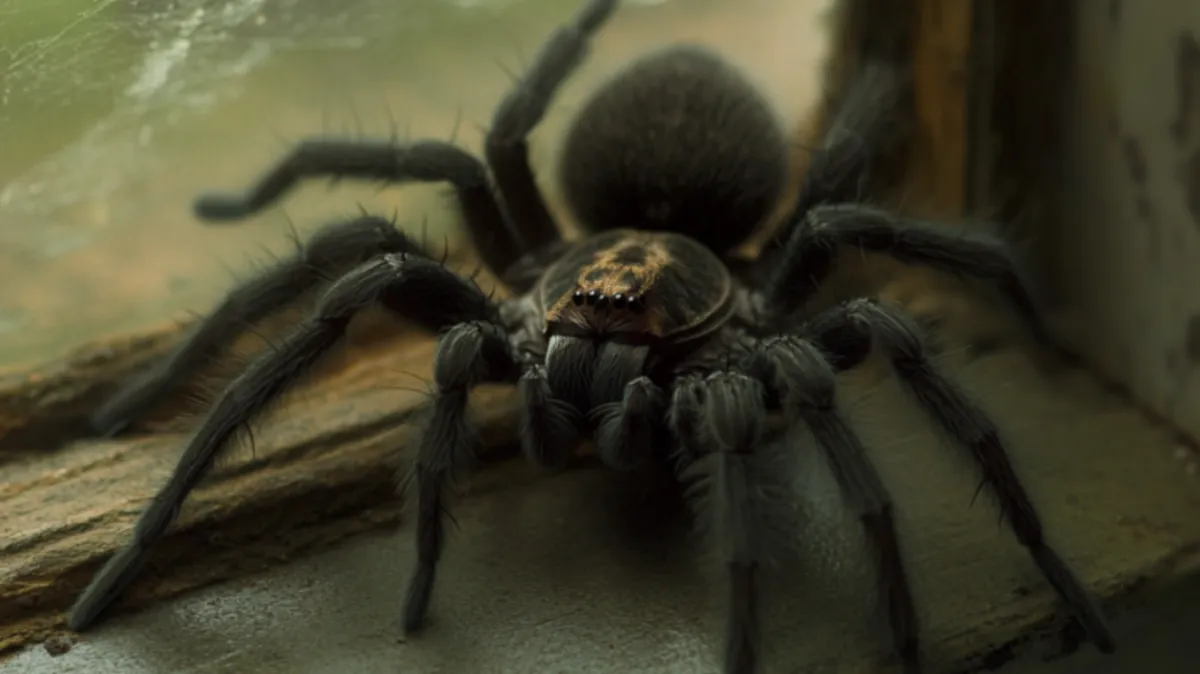
Late Summer Pests: What Lurks in Your Vancouver Home Before Fall?
The Late-Summer Surge: Why Now?
As the vibrant days of summer begin to fade, certain pests ramp up their activity, causing unexpected disturbances around homes and yards. Understanding the reasons behind this seasonal surge helps Vancouver homeowners stay ahead of potential infestations. Here’s what triggers the late-summer pest uptick:
1. Mating Season Intensifies
For many spider species, late summer signals the start of their breeding cycle.
Male spiders become significantly more active, traveling farther in search of females, often ending up inside homes.
Increased mobility and visibility during this period result in more frequent human encounters and unwanted surprises in basements, bathrooms, and living areas.
In some cases, webs may appear in new or unusual spots due to this mating behavior.
2. Peak Populations of Stinging Insects
Wasps, yellow jackets, and hornets reach their largest colony sizes by late summer.
As the queen reduces her egg-laying, worker insects have fewer tasks and become more aggressive in their search for sugary foods and protein.
This makes patios, BBQ areas, garbage bins, and even pet food bowls prime targets for foraging.
With increased aggression, the risk of stings also rises—especially dangerous for individuals with allergies.
3. Environmental Shifts Drive Pests Indoors
As temperatures begin to cool in the evenings and food sources become scarcer, pests like earwigs, spiders, and ants seek shelter.
Moisture and darkness attract these pests to basements, crawl spaces, and behind household appliances.
Diminishing daylight and shortening days also signal pests to begin seeking overwintering locations, prompting early entry into homes.
4. Overlapping Life Cycles and Nest Dispersal
Many pests complete a reproductive cycle by late summer, releasing a new generation.
These young pests often disperse to find new nesting or feeding grounds—sometimes choosing the protected areas within your home.
This surge in younger, more mobile insects adds to the visibility and frequency of pest sightings during this period.
Spotlight on Common Late-Summer Pests
As August rolls in, a distinct group of pests begins to dominate the scene in Vancouver. Recognizing these late-season invaders—and their behaviors—can help homeowners take timely action to prevent them from becoming a nuisance or danger. Here's a closer look at the most common culprits:
1. Spiders – Silent Hunters on the Move
Mating Activity Increases: Many spider species become more visible in late summer due to mating season. Males venture out of their hiding places to find females, often crossing into human spaces like bathrooms, basements, and closets.
Webs in New Spaces: Homeowners may notice more webs in corners, windowsills, and storage areas as spiders establish new nesting grounds.
Misunderstood Intruders: While most spiders are harmless and beneficial in controlling other pests, their presence indoors can still be unsettling, especially when sightings increase suddenly.
Prevention Tips:
Reduce indoor clutter where spiders can hide.
Regularly dust and vacuum in lesser-used areas.
Seal cracks around windows, doors, and baseboards.
2. Earwigs – Moisture-Loving Home Seekers
Moisture Magnets: Earwigs thrive in damp, dark environments. As late-summer evenings grow cooler and drier outdoors, they seek out indoor areas that provide the humidity they crave.
Distinct Appearance: Easily identified by the forceps-like pincers on their rear, earwigs often cause alarm despite being mostly harmless.
Common Hiding Spots: They typically hide in basements, under sinks, around laundry areas, and in piles of leaves or mulch.
Prevention Tips:
Use a dehumidifier in basements and crawl spaces.
Keep mulch and garden debris at least a foot away from your foundation.
Seal any ground-level gaps or cracks.
3. Stinging Insects – Aggression Peaks Before Fall
Population and Aggression Spike: By late summer, colonies of wasps and yellow jackets reach peak size. With fewer roles to play in the nest and dwindling natural food sources, these pests become more aggressive in their search for sweet and protein-rich foods.
Outdoor Threats: Backyard BBQs, garbage bins, compost piles, and even soda cans become hotspots for these flying intruders.
Health and Safety Risk: For individuals allergic to insect stings, the increased presence of wasps and yellow jackets can be particularly dangerous.
Prevention Tips:
Keep food and drinks covered during outdoor meals.
Secure trash bins with tight-fitting lids.
Remove nests early with the help of a professional pest control technician.
Proactive Measures to Protect Your Home
As late-summer pests become more aggressive or begin looking for overwintering sites, it’s important to take preventative steps now to avoid infestations. These simple but effective measures can help Vancouver homeowners keep their living spaces safe and pest-free as the seasons shift.
1. Seal Entry Points
Many pests sneak into homes through the smallest gaps, especially as they seek shelter from changing temperatures.
Inspect Doors and Windows: Look for torn screens, cracked caulking, or loose weather stripping that can create an entry path.
Seal Cracks in the Foundation: Use caulk, expandable foam, or steel wool to fill gaps in your foundation, siding, or brickwork.
Install Door Sweeps: Add door sweeps to all exterior doors to block crawling insects like earwigs and spiders from entering.
2. Reduce Attractants
Pests are driven by food and shelter—removing these incentives is key to keeping them away.
Secure Food Properly: Store pantry staples and pet food in airtight containers.
Dispose of Trash Regularly: Use bins with tight-fitting lids and keep them away from entry doors and windows.
Control Outdoor Lighting: Replace bright white bulbs with yellow "bug lights" to reduce insect attraction. Insects gathering near your lights may also attract spiders and wasps.
By applying these pest prevention strategies in late summer, you can avoid the stress and discomfort of unwanted visitors in your home as autumn approaches. Knockout Pest Control is proud to serve the Vancouver area with expert inspections and tailored treatment plans to ensure your home remains pest-free year-round.
👉 [https://knockoutpestcontrol.ca/]